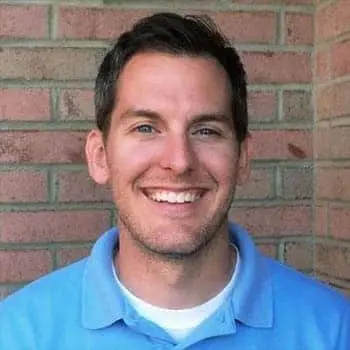Finding the best Florida alcohol abuse hotlines and local support group meetings doesn’t have to be an overwhelming and complicated process.
Being addicted to alcohol or other drugs, or knowing someone who is addicted, can be an extremely stressful and isolating experience. People in this situation need the assistance and support of experts, but often, they don’t know where to turn.
In Florida, there are numerous drug abuse hotlines that provide the information and direction people need to address addiction and dependence. Anyone looking for helpful addiction resources should consider these options.
Who to Call in Florida
Many states, including Florida, are working to streamline the process of calling a hotline for issues like mental health and substance abuse issues. Calling 2-1-1 from anywhere in Florida will put you in contact with a person able to guide your next steps.
Treatment Can Be Life Changing. Reach out today.

If you are looking for services to fit your needs, the Florida Department of Children and Families provides a link to help find local services by county. Contacting professionals in Florida about alcohol abuse is only a call or a click away.
When to Call an Alcohol Abuse Hotline
There is no wrong time to call an alcohol abuse hotline. Since the process generally carries no commitment or exchange of personal information, making the call has very low risks.
People thinking about making the call for themselves may start noticing the effects of alcohol creep into their life. They may report:
- Spending more time trying to get, use and recover from alcohol
- Drinking more or more often than intended
- Feeling uncomfortable without alcohol in the system
- Missing work, forgetting to pay bills or doing poorly in school because of alcohol use
- Increased conflict with friends and family
- Spending more time alone inside than being out with friends
- Physical and mental health problems from drinking
- Engaging in dangerous or reckless behaviors when under the influence
- Legal issues like DUIs
Any time a person experiences feeling nauseous or shaky without alcohol in their body, they should call a hotline. These symptoms illustrate an alcohol dependence, which means the body is accustomed to alcohol’s presence that the person needs the substance to feel well and function normally. Professional treatment is likely necessary at this stage.
If a loved one could benefit from a call to an alcohol abuse hotline, they could show signs of addiction like:
- Having slurred speech and poor coordination
- Drastic weight, diet or sleep changes
- Sudden and unexpected mood changes
- Many empty alcohol bottles around the house
- Making excuses about missing work
- Frequent complaints of not feeling well
- Drinking at all times of the day
- Smelling of alcohol
- Lying about where they are or what they are doing
Even if someone is unsure about making a call, try calling an alcohol abuse hotline anyway. Doing so can reduce any fears and hesitations about the process.
What to Expect When You Call
If you have made the decision to call an alcohol abuse hotline, you will likely communicate with a concerned and compassionate individual on the other end of the phone. Depending on the exact type of hotline, the person may ask questions about:
- Your first name, age and location
- The problem you are calling about
- The frequency, intensity and duration of drinking
- If other drugs are combined with alcohol
- History of physical or mental health problems
The hotline representative will ask about what treatments or services the person is interested in receiving. Would the person like a referral to an inpatient detox center, or only a list of nearby support group meetings?
Ideally, the representative can make an educated treatment recommendation based on the level of alcohol abuse to keep the person and their loved ones safe.
National Alcohol Abuse Hotlines
Though there are numerous local alcohol abuse hotlines, national alcohol abuse hotlines are great options for many interested in making the call. These hotlines offer access to a wide variety of resources with knowledgeable and well-trained operators answering the calls.
Local Support Groups
The national hotlines may be a great way to start the treatment process or receive access to available resources, but sometimes people long for face-to-face interaction with someone who knows what it is like to live with an addiction. In these instances, finding a local support group for alcohol addiction could be the best choice.
- Alcoholics Anonymous. Alcoholics Anonymous (AA) is an international organization aimed at helping people end their alcohol use through a 12-step process focused on admitting that the person is powerless to the control of the drug. A quick online search for AA meetings in your area can offer numerous options.
- Narcotics Anonymous. Narcotics Anonymous (NA) is an alternate version of AA that is built around the needs of someone using drugs as well as alcohol. Since people often use alcohol with other drugs, attending an NA meeting may be a better fit for your individual needs. Like AA, NA groups are generally welcoming and helpful to those in need.
- Al-Anon/Alateen. AA and NA meetings are usually reserved for people with alcohol use issues while Al-Anon and Alateen support groups are for those who love someone with alcoholism. Meetings are available nationwide with electronic meetings offered as well. Check out their website for more information.
Related Topic: Al-Anon vs. AA
Keep in mind that support groups, while helpful, are not a form of professional substance abuse treatment. They offer an invaluable amount of support and fellowship, but they cannot help someone experiencing a psychiatric or medical crisis.
Reach out to The Recovery Village Palm Beach at Baptist Health to speak with a representative about how professional addiction treatment can benefit you or a loved one. Take the first step toward a healthier future, call today.











